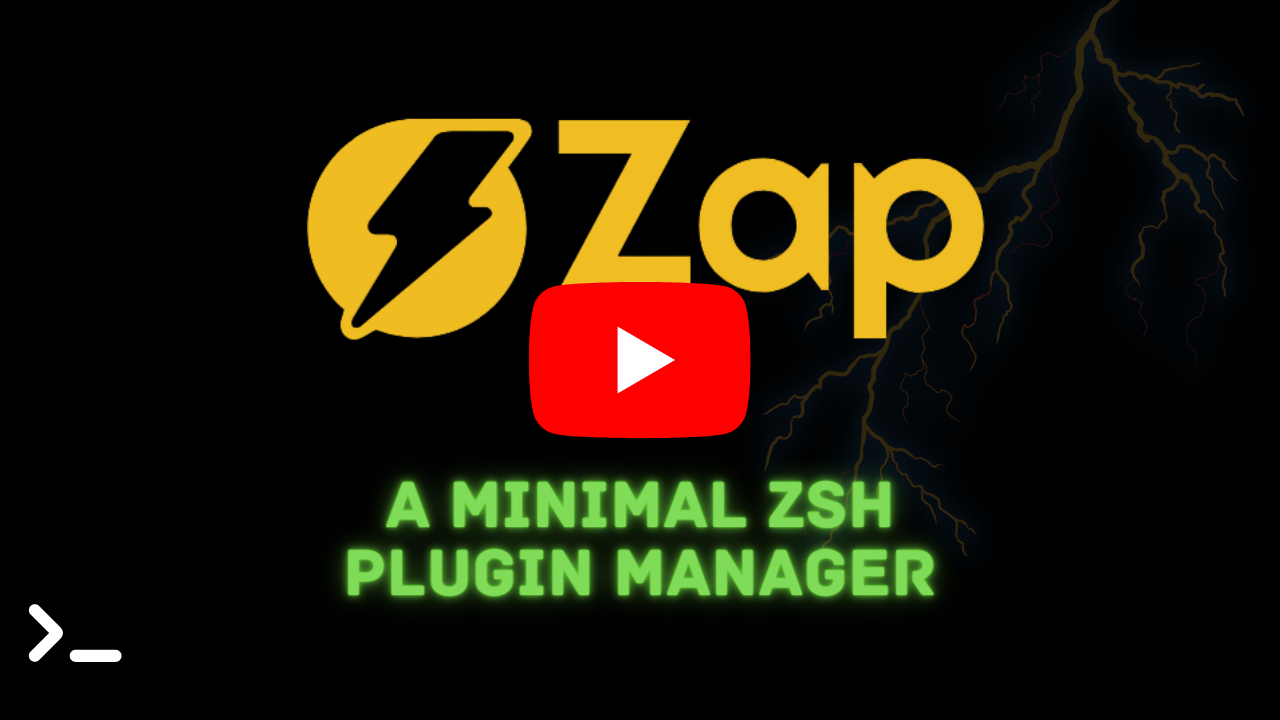- ZSH
- a nerd font (optional)
To get your nerd font check out getNF project or visit NerdFonts site.
zsh <(curl -s https://raw.githubusercontent.com/zap-zsh/zap/master/install.zsh) --branch release-v1Tip
If you wish to keep your current .zshrc file, you may add the -k or --keep argument when executing the install script.
Zap works on Linux, macOS, Windows (within WSL), Android (within Termux)
Add the following to your .zshrc
# Example install of plugins
plug "zap-zsh/supercharge"
plug "zsh-users/zsh-autosuggestions"
# Example install of a plugin pinned to specifc commit or branch, just pass the git reference
plug "zsh-users/zsh-syntax-highlighting" "122dc46"
# Example install of a theme
plug "zap-zsh/zap-prompt"
# Example install of a zsh completion
plug "esc/conda-zsh-completion"You can also use Zap to install custom plugins or source custom files present on your local filesystem. A file descriptor which points to a directory is treated as a plugin, versus a regular file. For example:
# Example install of a local plugin
plug "$HOME/plugins/my-custom-prompt"
# Example sourcing of local files
plug "$HOME/.config/zsh/aliases.zsh"
plug "$HOME/.config/zsh/exports.zsh"
# Example install all local plugin in a folder (must be an absolute path anding with *)
plug "$HOME/plugins/*"By default Zap when installing a plugin will clone a GitHub repository using a HTTPS web URL, if you require to be able to install from a private GitHub or from a different git server (for example GitLab) you can provide a different URL prefix to be used. For example:
# Example globally setting the prefix for Zap to git clone using an SSH key
export ZAP_GIT_PREFIX="git@github.com:"
plug "zap-zsh/private-repo"
# Example git clone using GitLab for a single plugin
ZAP_GIT_PREFIX="https://gitlab.com/" plug "user/repo"It is possible to call plug in any interactive shell session to source a file or to download and source a plugin for that particular session.
plug outside your .zshrc file, the plugin you sourced will not be sourced at the next shell reload.
Zap provided commands for updating and cleaning up plugins
-
To update plugins or Zap:
zap update self # Update the Zap installation zap update plugins # Update all your plugins but not Zap zap update all # Update both the Zap installation and its plugins
-
To list all plugins you are using:
zap list
-
To remove plugins you are no longer using:
zap clean
To uninstall Zap, when currently active, execute the following:
rm -rf "$ZAP_DIR"When not currently active, execute the following:
rm -rf "${XDG_DATA_HOME:-$HOME/.local/share}/zap"For sourcing local files use $HOME instead of ~ when giving a full path to the file.









